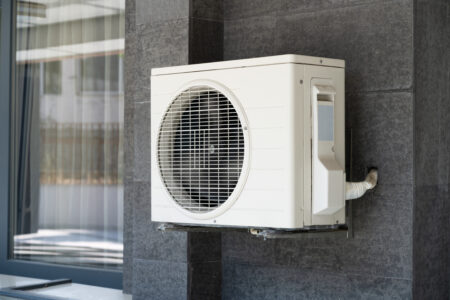
Heat pumps are a popular choice for homeowners looking for an efficient way to heat and cool their homes. These versatile systems work by transferring heat from one place to another, making them highly efficient under the right conditions. However, like all HVAC systems, heat pumps have their limitations. One common question we get at Ideal HVAC Services is: “At what temperature do heat pumps lose efficiency?” Here’s what you need to know.
Understanding Heat Pump Efficiency
Heat pumps are designed to work efficiently in moderate climates. They can extract heat from the air, even at low temperatures, but their efficiency decreases as the outdoor temperature drops. This is because there is less ambient heat available to be transferred indoors.
The Efficiency Drop-Off Point
Heat pumps typically start losing efficiency at around 40°F (4.4°C). As the temperature drops below this point, the heat pump has to work harder to extract heat from the outdoor air. The critical threshold is usually around 25°F to 30°F (-3.9°C to -1.1°C). Below this range, the efficiency of a heat pump significantly decreases, and it may require supplemental heating to maintain indoor comfort.
Factors Affecting Efficiency
Several factors can influence the temperature at which a heat pump loses efficiency:
- Heat Pump Type: Different types of heat pumps, such as air-source, ground-source, and hybrid systems, have varying levels of efficiency. Ground-source (or geothermal) heat pumps, for instance, are less affected by outdoor air temperatures because they draw heat from the ground, which maintains a relatively constant temperature year-round.
- System Size and Design: The efficiency of a heat pump can also depend on whether the system is properly sized and designed for your home. An undersized or poorly installed system may lose efficiency more quickly in colder temperatures.
- Maintenance: Regular maintenance is crucial to keep your heat pump operating efficiently. A well-maintained system will perform better in cold weather compared to one that has not been serviced regularly.
Improving Cold Weather Performance
To improve the performance of your heat pump in colder temperatures, consider the following tips:
- Install a Hybrid System: A hybrid system combines a heat pump with a traditional furnace, allowing you to switch to the furnace when the heat pump becomes less efficient.
- Regular Maintenance: Schedule regular maintenance checks to ensure your heat pump is in optimal condition.
- Insulation and Sealing: Improve your home’s insulation and seal any air leaks to reduce the load on your heat pump.
Heat pumps are an excellent choice for energy-efficient heating and cooling, but their efficiency can drop as outdoor temperatures fall. Understanding the temperature thresholds and factors that affect efficiency can help you maximize your system’s performance. At Ideal HVAC Services, we’re here to help you get the most out of your heat pump. Contact us today for professional advice and services to keep your home comfortable year-round. Ask us about our maintenance plan!
Contact Ideal HVAC Services today!
